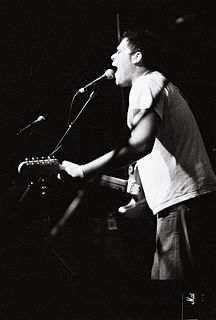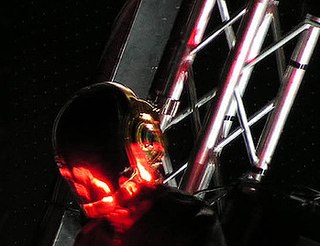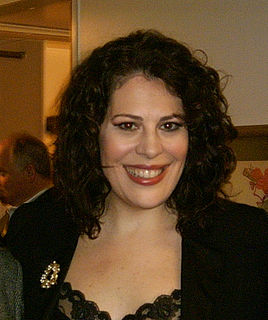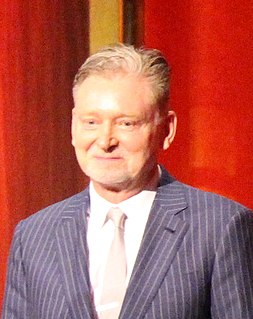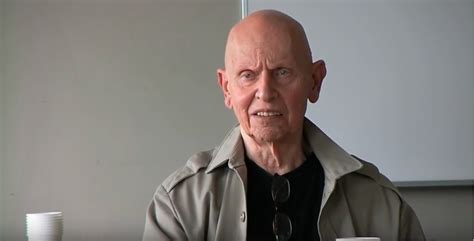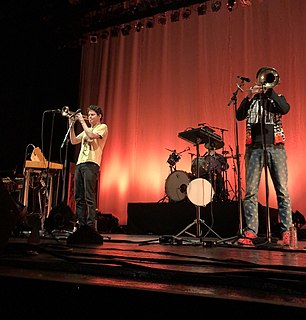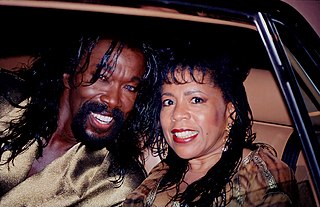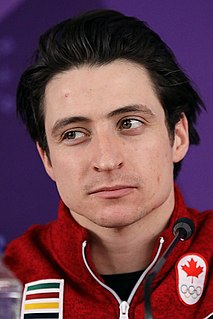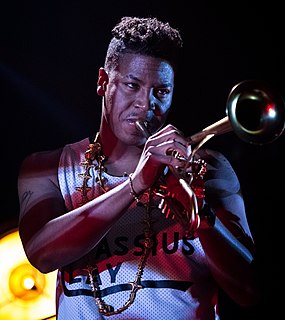A Quote by Win Butler
I was really sick of bands just ignoring the audience as a posture in rock music. And I think we fed off each other in terms of trying to engage the audience, not in a hammy way, but actually trying to be aware of the space that you are playing in and trying to connect in some way through the music.
Related Quotes
I'm always trying to want to connect with fans and to connect them to each other. I mean, there's other things that I'm trying to do, but in terms of connectivity, that is really important to me. And I am a smaller artist still and there are people that are super passionate about my music, but not everyone in their circle knows about me. But yeah, I've always trying to find ways to connect fans to each other.
Bands now are always trying to make their presence known through social networking and whatnot, but that's just the same as bands before the Internet age trying to connect with fans in some other way. But I don't follow people on Facebook, I think that's creepy. I wouldn't want them following me on Facebook. I don't even have a mailing list.
I don't really think of these as projects. I think of them as bands. I have tried to not just convene a group of musicians and make one record or make one gig and just drop it. Each of them develop over time. I have been really fortunate to keep a band like the Sextet together over three very different albums. Each time, the goal got more deep for me in terms of how I wanted to write for those people. So it is really about trying to develop ideas and trying to have a consistent focus on a way to come up with new ideas in music that I want to do.
Even when I'm not onstage singing, there's always music going on in my head. It's a curse and a blessing in a way - it's sitting in bed at night, trying to go to sleep, while the music keeps playing in your head - especially when you're trying to learn something new and you're trying to memorize it and get everything.
When you're still in the broadcast business, you're still trying to reach tens of millions. You're trying to still aim for a broader audience, and I think that's a more difficult task to spread yourself across that audience, connect with them, as opposed to a very, very small, pinpointed audience. Difficult to do.
I think I'm really part of a whole generational movement in a way. I think a lot of other people since and during this time have gotten interested in writing what we can still call experimental music. It's not commercial music. And it's really a concert music, but a concert music for our time. And wanting to find the audience, because we've discovered the audience is really there. Those became really clear with Einstein on the Beach.
I'm speaking to someone I'm trying to get to fall in love with me. I'm trying to speak intimately to one person. That should be clear. I'm not speaking to an audience. I'm not writing for the podium. I'm just writing, trying to write in a fairly quiet tone to one other reader who is by herself, or himself, and I'm trying to interrupt some silence in their life, which is utterance.
As a songwriter, you tend to develop your own style, your own technique, based around what it is you're trying to write and perform, in terms of your own music. So a way of evolving a guitar style as a songwriter is much easier, I think, than developing a true style of your own just from listening to music or playing other people's music.
I was in rock music in London when it was the height of Brit pop, with The Kinks revival and Suede and Blur and Oasis, and all of those really great bands that were of a certain style. If I'd really been smart and commercially minded, I would have just got myself a blazer and some Stay Press and some Fred Perry tops, and just gone out and tried to do it like everyone else. Instead, I did this ridiculous thing of trying to do this music.
People call what we do "stretch music." This is our style, and one of the newer, in vogue ways of playing creative, improvised music. It really grew out of me trying to address something that I saw in my everyday life in my neighborhood - trying to develop that and refine that and excavate exactly what that was in a way that, when I communicated it, it was palpable and easily read. That started really early. Why it started was from something that I was really angry about.


